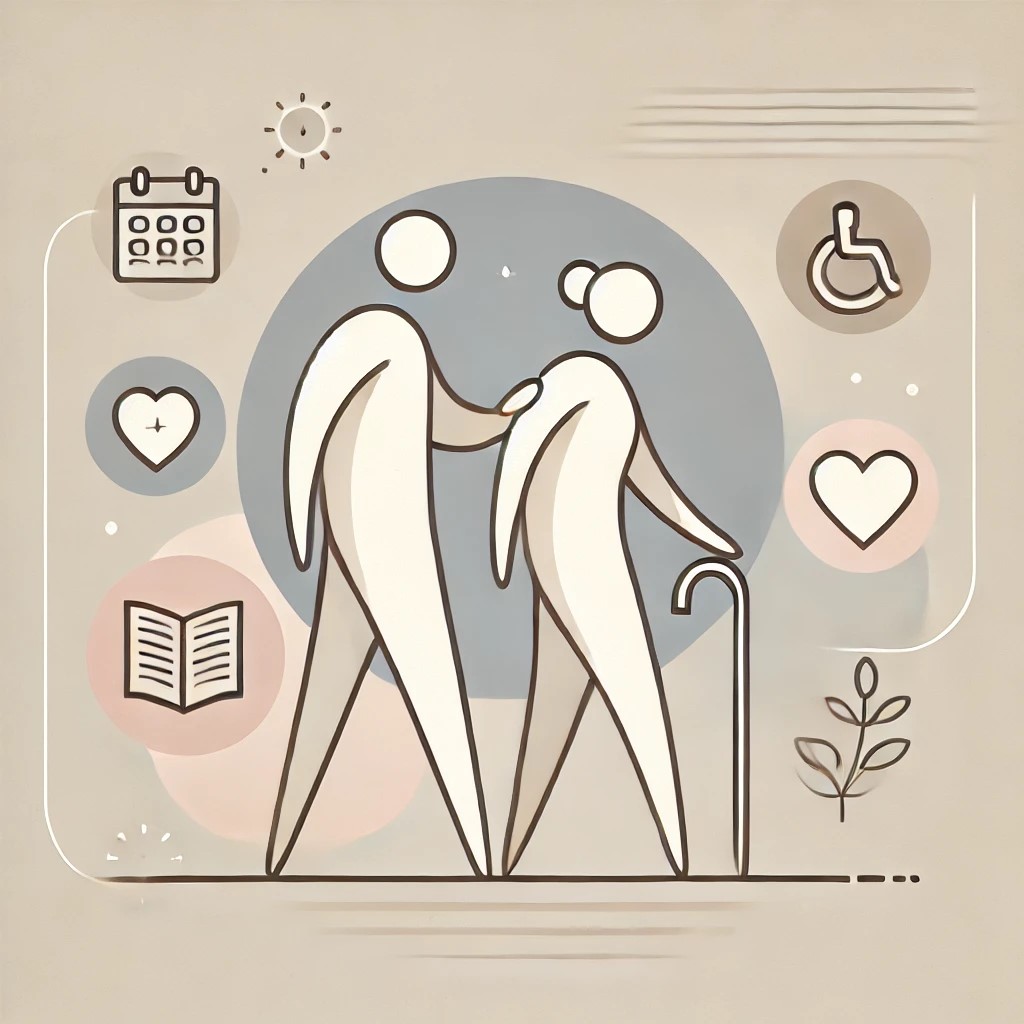
Understanding and Navigating the Early Stage of Alzheimer's Disease
In the early stages of Alzheimer's disease, many people continue to function independently. They may still be able to drive, engage in social activities, volunteer, and even work. As a care partner, your role becomes crucial in providing support and companionship, while also helping plan for the future.
What Does "Early Stage" Mean?
The "early stage" refers to individuals diagnosed with Alzheimer's disease or a related disorder who are still in the beginning phases of the disease. This stage can last for years, affecting not only those with the diagnosis but also their loved ones. During this time, it's essential to focus on understanding the progression of Alzheimer's and learning how to best support your loved one.
Your Role as a Care Partner
As a care partner, you're stepping into a new role that may feel unfamiliar. You might find yourself unsure of where to access information, anxious about future challenges, and concerned about your capacity to provide support. These feelings are completely normal.
A timely diagnosis allows you and the person with dementia to make decisions together about the future, such as legal and financial planning, long-term care, and exploring treatment options. Participation in clinical trials and local support resources may also be beneficial. Taking advantage of these options can help reduce uncertainty and improve outcomes for both of you.
Secondary Care Partners
Care partners are not always limited to spouses or immediate family. Friends, neighbors, or distant relatives may also play significant roles in providing support. If you're a secondary or remote care partner, connecting with other members of the support network can help you stay informed and provide valuable assistance.
Finding a New Balance
A key challenge for care partners is determining when and how much help to provide, especially since individuals in the early stage are often still largely independent. For example, they may need minimal assistance with daily tasks like dressing, walking, or managing a budget. By helping with specific tasks, you can empower them to develop new coping strategies, thereby maximizing their independence.
Tips for Supporting Independence
Here are a few strategies to help the person with dementia remain as independent as possible:
- Safety First: Assess whether any immediate risks exist for tasks performed alone. If not, encourage independence with supervision as necessary.
- Avoid Stress: Prioritize tasks that won't cause unnecessary frustration. For instance, if grocery shopping becomes stressful, help by planning meals together and creating a shopping list.
- Positive Assumptions: Approach each task with the assumption that they can complete it. If frustration arises, try to identify the cause before intervening.
- Communication Signals: Develop a cue or phrase to check if they need help, such as “Is there anything I can do to assist?â€
- Open Dialogue: Ask directly about their needs and frustrations. Talking through concerns can help you both find the best ways to navigate tasks together.
Supporting Emotional Well-being
Alzheimer's can bring a mix of emotions for both you and the person with dementia. You may experience denial, fear, frustration, or grief as you adjust to this new role. Acknowledging these feelings can help you work through them, ultimately strengthening your relationship and enhancing your caregiving ability.
It's also essential to recognize the emotions of the person with dementia. Encourage them to express their feelings, perhaps through journaling or meaningful activities. Talking about these emotions together can help both of you find acceptance and enjoy quality time in the present.
Helping the Person with Dementia Live Well
Even in the early stages, people with Alzheimer's can lead fulfilling lives. As a care partner, you can play a significant role in helping them stay active, engaged, and independent. Consider encouraging physical activity, preparing balanced meals, establishing a routine that promotes quality sleep, and identifying situations that might be too stressful for them.
Taking Care of Yourself
Supporting someone with Alzheimer's can be demanding, so it's crucial to prioritize your well-being. Maintain a balanced diet, engage in regular physical activity, and don't hesitate to seek support from friends, family, and care partner groups. Building a support network before you need it can help you navigate the challenges ahead with greater ease.
Here are some self-care tips:
- Seek Support: Dedicate time for yourself each month, even if it means asking others to spend time with the person with dementia in your absence.
- Connect with Other Care Partners: Support groups offer encouragement from those who understand your experiences.
- Stay Healthy: Regular exercise, a balanced diet, and routine check-ups are essential for your well-being.
- Accept Help: Don't wait too long before asking for assistance from others.
Empowering Yourself with Knowledge
Educating yourself about Alzheimer's can help you feel more confident and prepared for the future. As a care partner, you may reach a place of acceptance before the person with dementia does. While only they can truly come to terms with the diagnosis, sharing information and providing support can aid their journey to acceptance.
For additional resources, consider exploring online courses or support groups focused on Alzheimer's care. By learning more about the disease, you can better understand your role and feel empowered to make informed decisions as the disease progresses.
By embracing this knowledge, you can make the most of the early stages and provide meaningful, supportive care for your loved one.